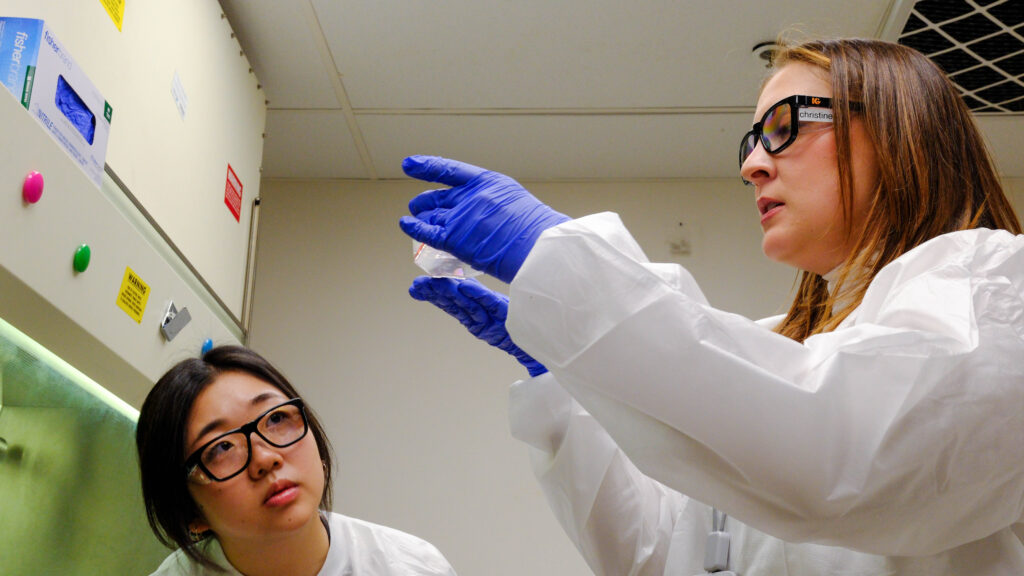Dr. Christine Nelson, PhD, recently joined the CIC membership. Nelson’s research focuses on understanding the immune response to Mycobacterium tuberculosis (TB). Originally from Minnesota, she pursued her graduate studies in immunology with a focus on cancer and autoimmunity before transitioning to infectious disease research. Specifically, investigates T cell responses in tuberculosis, a disease that remains a leading cause of infectious disease mortality worldwide. She aspires to contribute to the development of improved TB vaccines and therapies.

Despite being preventable and treatable, TB remains a disease of global significance, with over ten million infections and one million deaths recorded annually. Dr. Nelson emphasizes that one of the key challenges in combating TB is that we don’t fully understand the best way to help our immune systems fight it. “One helper T cell subset, TH1s, should protect against intracellular bacteria, like TB. All our vaccines and all our efforts have been put into generating a TH1 immune response, but it hasn’t resulted in better treatments, better therapies, or a reduction in the global burden of TB,” Nelson explained. Her research seeks to uncover new immune mechanisms that could produce new vaccine strategies. She is particularly excited by an immune molecule, interleukin-26 (IL-26), which can directly kill bacteria. IL-26 is understudied in TB research, yet early findings suggest it could play a crucial role in controlling bacterial growth, and therefore disease progression. Her team is actively working on characterizing IL-26’s role in TB immunity and its potential as a target for therapeutic intervention. Nelson’s lab conducts both with Mycobacterium tuberculosis and a safer Mycobacterium bovis strain, a model for studying TB immunity. They use state-of-the-art equipment to deliver aerosolized bacteria for a more realistic disease delivery and single cell RNA sequencing to evaluate the immune response at the cellular level.
CIC membership provides Nelson and her team access to its vibrant intellectual community. “Becoming a CIC member was one of the first things I wanted to do when I got here. I’m a big fan of all the other members. The research they do is so varied, and I think it’s critical to be able to see all of what is being done, because that is, for me, that is when you get your best ideas. I saw two talks recently from CIC members, one about Entamoeba infection from Dr. Audrey Brown and one from PhD student Claire Williams, both had a fantastic model of undernutrition, and undernutrition is one of the biggest risk factors for developing TB, so those models could be very impactful for our TB research. I never would have even known they existed if I wasn’t participating in the CIC,” says Nelson.
As a new faculty member, Nelson is focused on expanding her research program and developing new collaborations. Her lab is currently recruiting, and interested individuals should contact her for more information.
